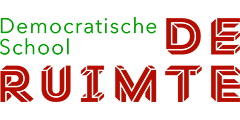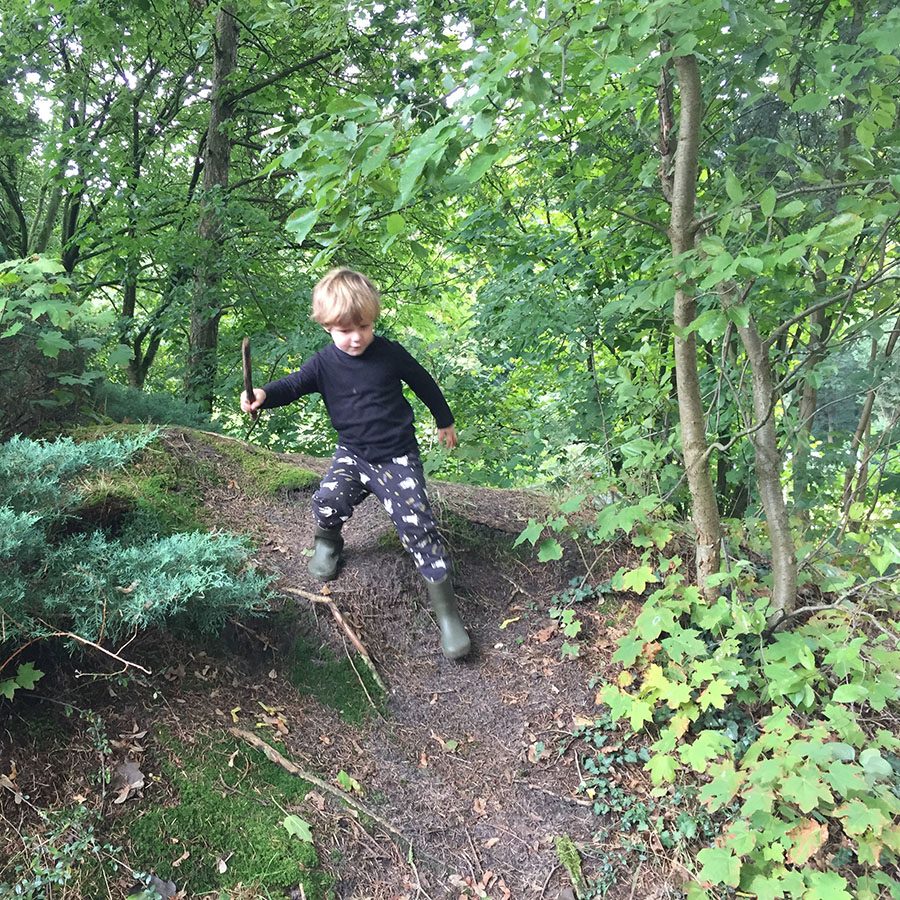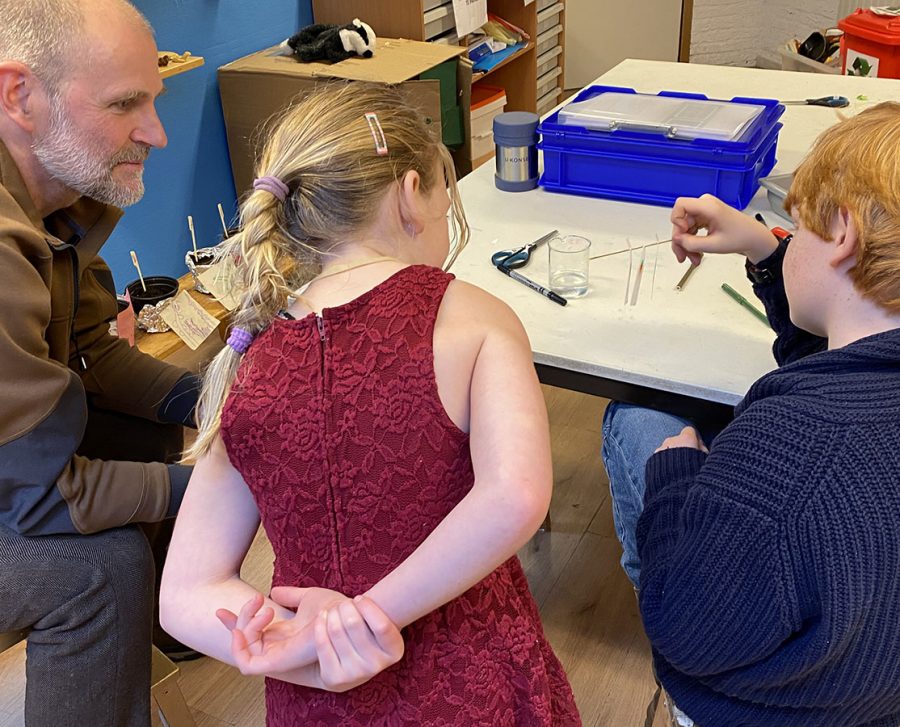Our vision on education
All human beings are curious by nature. Curiosity does not need coercion or persuasion, that is why going to school is so much fun. There is space to do whatever suits you from intrinsic motivation. Learning while playing, for instance, and learning to live together. Finding out what questions you want to put into the world, searching for answers that interest you. In this way you can become who you are and feel valued. There is a lot to say on this topic and we will discuss some aspects of our vision here.
Educational system or school?
If you see the educational system as the transfer of knowledge and skills through a curriculum directed by the government and teachers trained especially for that purpose, we at de Ruimte prefer the word ‘school’ above ‘education’. We think the word school suits us better, coming from the word ‘schole’ in Greek, meaning ‘free time’.
The value of play
Playing is of immense importance in our school; never underestimate the value of playing. It is an attitude towards life. It is an open, resourceful and creative attitude. One of the main features of playing is that the outcome is undefined, which makes you want to discover and learn new things. Playing is on the edge of the known and the unknown, of being skillful and learning something new. Whenever you acquire a skill you create a new situation to challenge yourself again. Too big a step inspires fear, too small a step boredom. Students constantly adjust themselves and each other creating the most productive situation. One of the most important criteria in all this is a feeling of fun and satisfaction.
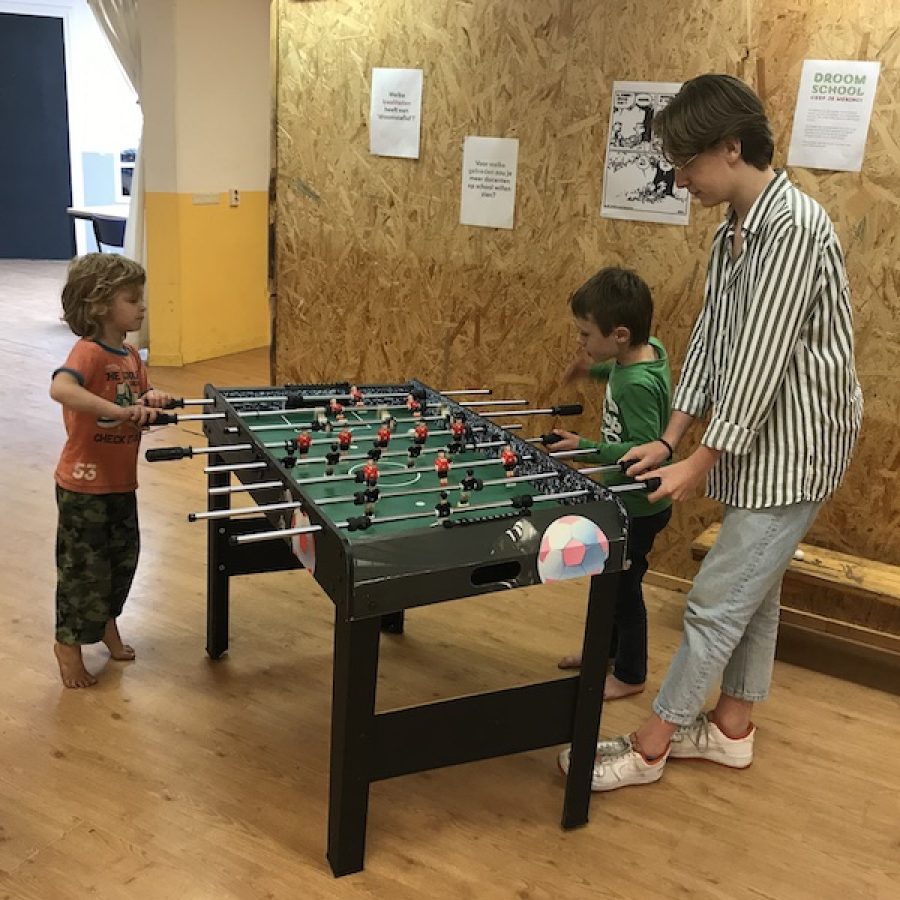
In play new opportunities are explored. Worlds are being copied and replayed to find out how they work. In this process unexpected things tend to happen. It demands a lot of flexibility from student as well as adults in the school to handle whatever comes up and to deal with every new situation. It is a continuous creative process. Playing also is an effective way to handle and integrate emotions. It makes it possible for students to learn without separating thinking from feeling, a skill which comes in handy in a fast changing world.
21st century skills
De Ruimte perfectly fits the government’s policy described in adviesplan Ons Onderwijs 2032 (Ministry of Education, January 2016), in which 21st century skills are highly regarded.
It features the following principles. The student:
- develops knowledge and skills by wielding his creativity and curiosity;
- shapes his individuality;
- learns to handle freedom and responsibility, and to look past his own boundaries;
- learns to exploit the opportunities of the digital world;
- receives tailored and meaningful education.
From day one students at De Ruimte, literally and figuratively speaking, get all the space they need to set their own path of learning. The transfer from primary to secondary education flows naturally.
Society is changing and knowledge plays a different role than in the past. The national discussion on education is about skills and softer values, the so-called 21st century skills; thinking critically and creatively, digital skills, self-regulation, communication and cooperation. These are all skills prevailing at De Ruimte
Simone Haenen, oud-student
Intrinsic motivation
At De Ruimte students learn through intrinsic motivation. If the child knows what it wants, it reaches towards it unwearyingly. The learning process is intens and the transmission of knowledge is quick. Students at De Ruimte choose what, how, when and with whom they want to learn, and look for a teacher if they need one.
The three pillars under our view on schooling
Our view is build on three pillars: equality, freedom and responsibility.
1. Equality
First pillar of the school is equality. This means that all members of the school community have the same rights and obligations. Students, staff members and teachers are equal, but take up different roles and responsibilities in the school.
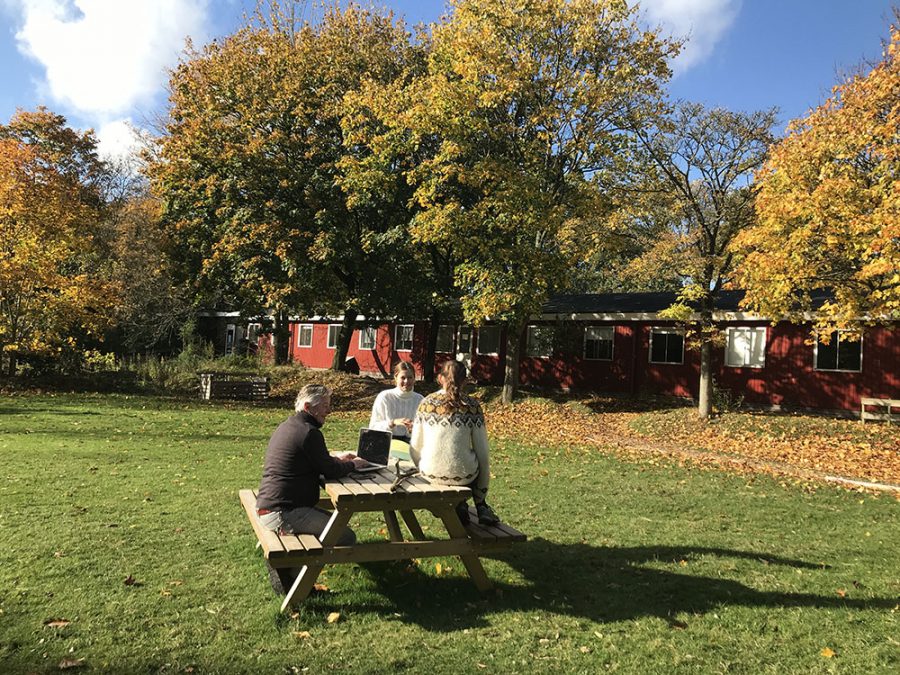
This equipollent cooperation makes for a special relationship between students, staff and teachers. The school is a web of horizontal networks and partnerships. Classes are fuelled by the equalitarian cooperation; there is intrinsic motivation and a feeling of mutual responsibility for the quality of the classes.
2. Freedom
On the other hand freedom is highly valued. Everyone decides for himself how to spend the day an who you would like to be with. We assume that every human being likes to push his boundaries and likes to explore and comprehend the world he is living in.
In the process ‘mistakes’ are being made, but there is always time to find solutions. In the end everybody comes out stronger and better prepared for future situations.
3. Responsibility
At De Ruimte you learn to take responsibility for whatever you create. This triggers a feeling of self-esteem and the experience of being in charge of your own life. Everyone within the school supports this process. We help each other whenever the need arises. In the end it is always the student who decides and takes charge of his own path.
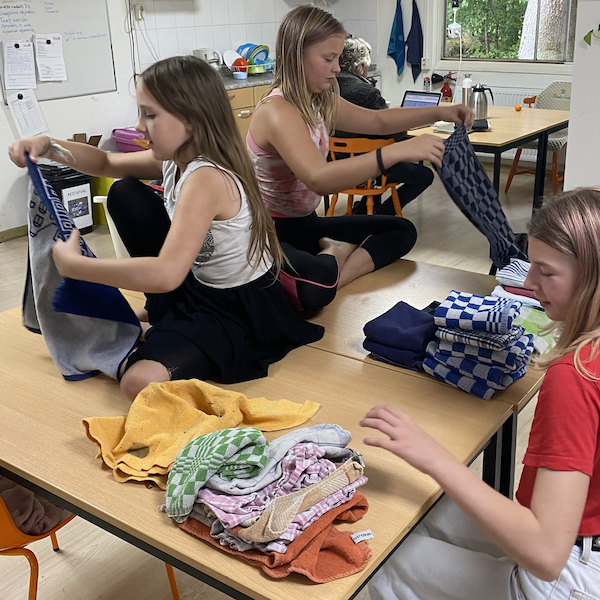
The surplus of deciding to take your schooling at De Ruimte is that you become co-responsible for keeping the school up and running. There is an elaborate list of chores in the hallway. You see students doing the administration or the laundry, taking care of the animals, organising excursions, taking the role of chair, taking the minutes of a meeting or sweeping the entry.
The circles are the foundation of the organisation of the school. Students learn what is needed to make an organisation run smoothly and the role they can play in making that happen. From the earliest age on students cooperate and help make decisions in the organisation of the school. It results in being articulate, knowing compassion and being able to use the skills of creative and constructive thinking later in life.
Age-mix
Not separating age-groups is one of the powerful features of the school. If students come together the mutual interest counts and not ones age. Older students comfort and protect the smaller ones and younger students develop a sense of self-esteem when they explain things to older ones. Older students serve as a role model but even so often as an anti-model for younger students. Younger students might fulfill a family role for older students.
Here you have multiple mixed groups. In that way younger students understand things that teachers do not need to explain to them. One of the students taught himself all there is to know about the Romans. When the history teacher was on sick leave, he took over the history classes. We also have the task to support the younger students, for instance to help them to stick to the rules. In this way this really becomes our school, not a school where the adults have more power than the children.
Xavier Trip, student op De Ruimte
Range of lessons
The classes that are offered are always a reaction to requests that come from the students. There is always a wide range of lessons that can be attended. Some may be dropped after a while and others pop up, depending on the need of the students. Someone may for instance have the wish to know Arabic. This person can ask the study circle to try and help find an appropriate teacher. Staff members and teachers are supposed to have a wide range of interest and to be able to support students in the broadest sense.
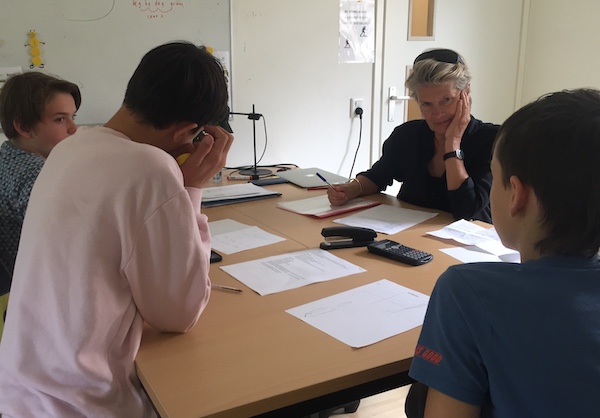
Counsellor
Every student chooses a counsellor following his/her development. Together with the student they register the progress in an online system. The counsellor is the first contact for the student in the school and regular get-togethers are planned to exchange information and support next steps.
Development is registered value-free in the online system called the Student Monitor. Twice a year this information in used in a meeting with the student, his parents/caretakers and counselor (pedagogical triangle).
Student Monitor
Throughout the year information about the student’s developments are gathered by means of interviews, observations and course reports. It is a value-free system, because the student is leader in setting the goals. There is no curriculum to measure by. In the interviews with the student we also check the following intentional goals:
- autonomy
- responsibility
- social skills
- self-motivation
- realistic self-image
- initiative
- wellbeing
These skills make you feel confident and may support a successful integration in society. By referring to these seven intentional goals and taking the exact point of development of the student for a starting point, self-reflection, self-esteem and self-respect increase.
It demands creativity to follow and register the process of dynamic learning of each individual student. Furthermore, following the development is only useful if it is part of the learning process and stimulates the motivation to learn. Authentic learning demands authentic evaluation.
Read more
• Deciding together
• Free to learn
• Frequently asked questions
